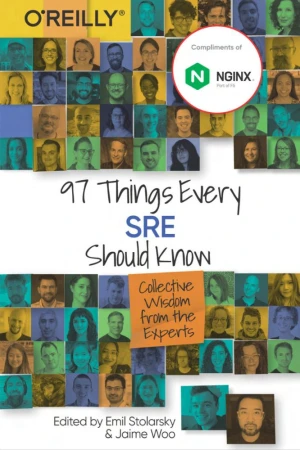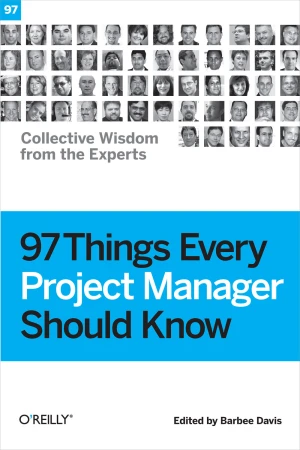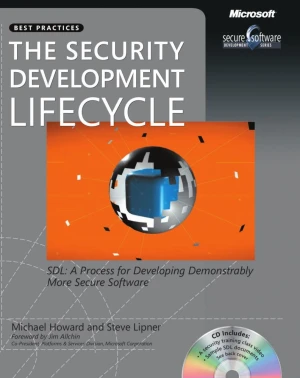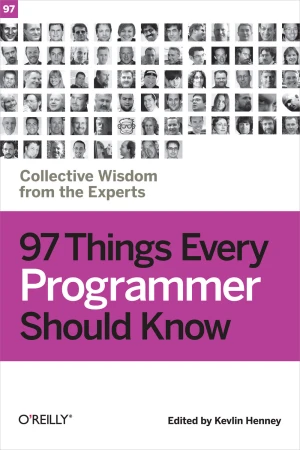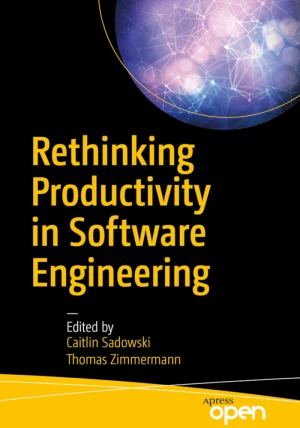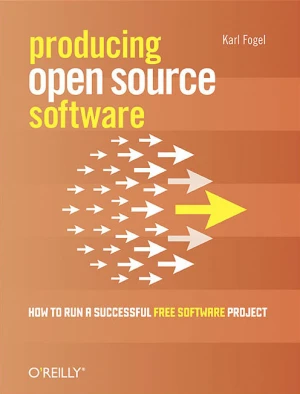97 Things Every Software Architect Should Know
Collective Wisdom from the Experts
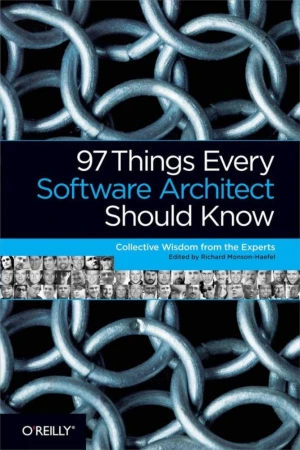
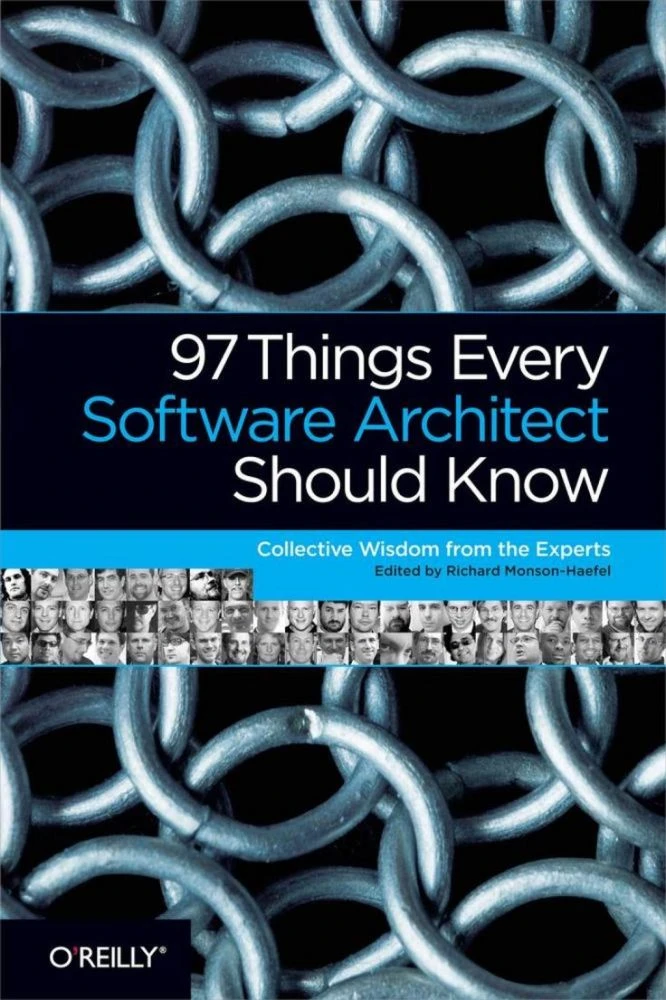
Book Details
| Authors | Richard Monson-Haefel, Kevlin Henney |
| Publisher | O'Reilly Media |
| Published | 2009 |
| Edition | 1st |
| Paperback | 118 pages |
| Language | English |
| ISBN-13 | 9780596522698 |
| ISBN-10 | 059652269X |
| License | Creative Commons Attribution |
Book Description
In this truly unique technical book, today's leading software architects present valuable principles on key development issues that go way beyond technology. More than four dozen architects - including Neal Ford, Michael Nygard, and Bill de hOra - offer advice for communicating with stakeholders, eliminating complexity, empowering developers, and many more practical lessons they've learned from years of experience. Among the 97 principles in this book, you'll find useful advice such as:
- Don't Put Your Resume Ahead of the Requirements;
- Chances Are, Your Biggest Problem Isn't Technical;
- Communication Is King; Clarity and Leadership, Its Humble Servants;
- Simplicity Before Generality, Use Before Reuse;
- For the End User, the Interface Is the System;
- It's Never Too Early to Think About Performance.
To be successful as a software architect, you need to master both business and technology. This book tells you what top software architects think is important and how they approach a project. If you want to enhance your career, 97 Things Every Software Architect Should Know is essential reading.
This book is available under a Creative Commons Attribution license (CC BY), which means that you are free to copy, distribute, and modify it, as long as you give appropriate credit to the original author.
If you enjoyed the book and would like to support the author, you can purchase a printed copy (hardcover or paperback) from official retailers.
Download and Read Links
Share this Book
[localhost]# find . -name "*Similar_Books*"
97 Things Every SRE Should Know
Site reliability engineering (SRE) is more relevant than ever. Knowing how to keep systems reliable has become a critical skill. With this practical book, newcomers and old hats alike will explore a broad range of conversations happening in SRE. You'll get actionable advice on several topics, including how to adopt SRE, why SLOs matter, when you ne
97 Things Every Project Manager Should Know
If the projects you manage don't go as smoothly as you'd like, 97 Things Every Project Manager Should Know offers knowledge that's priceless, gained through years of trial and error. This illuminating book contains 97 short and extremely practical tips - whether you're dealing with software or non-IT projects - from some of the world's most experie
The Security Development Lifecycle (SDL)
Your customers demand and deserve better security and privacy in their software. This book is the first to detail a rigorous, proven methodology that measurably minimizes security bugs - the Security Development Lifecycle (SDL). In this long-awaited book, security experts Michael Howard and Steve Lipner from the Microsoft Security Engineering Team
97 Things Every Programmer Should Know
Tap into the wisdom of experts to learn what every programmer should know, no matter what language you use. With the 97 short and extremely useful tips for programmers in this book, you'll expand your skills by adopting new approaches to old problems, learning appropriate best practices, and honing your craft through sound advice. With contribution
Rethinking Productivity in Software Engineering
Get the most out of this foundational reference and improve the productivity of your software teams. This book collects the wisdom of the 2017 "Dagstuhl" seminar on productivity in software engineering, a meeting of community leaders, who came together with the goal of rethinking traditional definitions and measures of productivity. The results of
Producing Open Source Software, 2nd Edition
The corporate market is now embracing free, "open source" software like never before, as evidenced by the recent success of the technologies underlying LAMP (Linux, Apache, MySQL, and PHP). Each is the result of a publicly collaborative process among numerous developers who volunteer their time and energy to create better software. The truth is, ho

